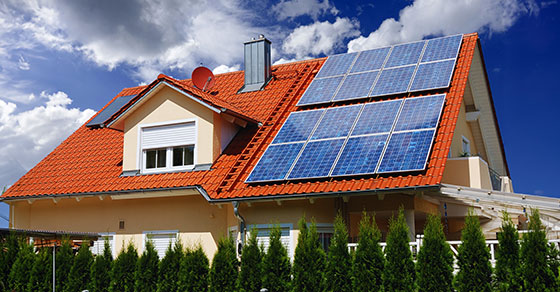
The Inflation Reduction Act (IRA), enacted in 2022, created several tax credits aimed at promoting clean energy. You may want to take advantage of them before it’s too late.
On the campaign trail, President-Elect Donald Trump pledged to “terminate” the law and “rescind all unspent funds.” Rescinding all or part of the law would require action from Congress and is possible when Republicans take control of both chambers in January. The credits weren’t scheduled to expire for many years, but they may be repealed in 2025 with the changes in Washington.
If you’ve been thinking about making any of the following eligible purchases, you may want to do it before December 31.
Homeowners can benefit from several tax credits for making energy-efficient upgrades to their homes. These include:
One of the most notable IRA provisions is the clean vehicle tax credit. If you purchase a new electric vehicle (EV) or fuel cell vehicle (FCV), you may qualify for a tax credit of up to $7,500. The credit for a pre-owned clean vehicle can be up to $4,000. To be eligible, the vehicle must meet specific criteria, including price caps and income limits for the buyer.
The credit can be claimed when you file your tax return. Alternatively, you can transfer it to an eligible dealer when you buy a vehicle, which effectively reduces the vehicle’s purchase price by the credit amount.
If you install an EV charging station at your home, you can claim a credit of 30% of the cost, up to $1,000. This credit is designed to encourage the adoption of electric vehicles by making it more affordable to charge at home.
These are only some of the tax breaks in the IRA that may reduce your federal tax bill while promoting clean energy.
IRS data has shown that the tax breaks are popular. For example, in 2023 (the first year available), approximately 750,000 taxpayers claimed the credit for rooftop solar panels. Keep in mind that a tax credit is more valuable than a tax deduction. A credit directly reduces the amount of tax you owe, dollar for dollar, while a deduction reduces your taxable income, which is the amount subject to tax.
So, act now if you want to take advantage of these credits. There may also be state or local utility incentives. Contact us before making a large purchase to check if it’s eligible.
© 2024
Receive Free financial tips & Tax Alerts!
"*" indicates required fields
It’s not uncommon for an estate plan to contain multiple trusts. They can enable you to hold assets for and transfer them to beneficiaries, avoid probate, and possibly reduce estate…
Members of the sandwich generation — those who find themselves simultaneously caring for aging parents while supporting their own children — face unique financial and emotional pressures. One critical yet…
If you inherit assets after a loved one passes away, they often arrive with a valuable — but frequently misunderstood — tax benefit called the step-up in basis. Below is…